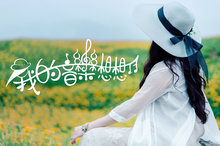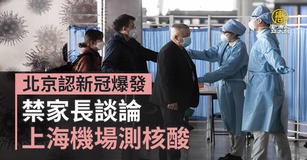【新唐人2011年6月11日訊】中國學者茅於軾發表《把毛澤東還原成人》,批判毛澤東,引發毛澤東的反對者和擁護者們展開了激烈的筆戰。擁護者聲稱毛澤東一身清廉。但卻有人指出,毛澤東是中共腐敗的源頭。那麼,毛澤東到底是清官還是貪官呢?
就在挺毛伐毛兩種聲音此起彼伏之時,網絡上又出現了一篇揭發毛澤東的文章。署名「保羅」的作者,在這篇題為《毛澤東乃腐敗源頭》的文章,開篇就指出:毛澤東的遺產就是政治腐敗,並為中共淪為最大經濟犯罪集團奠定了制度及思想組織基礎。
不過一位陝西吳起的思先生在接受《美國之音》採訪時說,毛澤東是為了窮人打江山,沒個人利益,很廉潔。
北京歷史學者章立凡認為,當時中國人的工資,一個月只有幾十塊錢,毛的生活大大超過了普通人,說他清廉,有違史實。章立凡認為,懷念毛澤東的人主要是對現實不滿。
章立凡:「但是回頭也沒出路。你真回到毛時代,讓你去接受那種低工資,日用品、生活必需品、食品都要配給的生活,我看也沒有一個『毛粉』願意接受。」
據統計,中國各地為毛澤東建立的行宮就有61處。其中有部分就是在1960年前後,正值中國大饑荒時期,而蓋行宮花費的巨資足以充當幾千萬人的口糧。
1959年毛澤東到韶山故居水庫游泳,認為這裡是避暑療養的好處所。第二年這裡便聳立起一座仿中南海毛澤東住處的別墅群,集辦公室、臥室、衛生間、圖書室於一體的「滴水洞」工程,後來還有了防原子彈的地下行宮。造價達1億元。
另一方面,毛澤東一向被宣傳為在1959年到1961年三年饑荒時期,「不吃肉」、與人民「患難與共」。可是,據中共紅旗出版社1996年11月版的《毛澤東遺物事典》記載中可以看出,60年代初毛澤東迷上了西式大餐,僅西菜菜譜就包括七大系列,而且他對豬肉情有獨鍾,光是西菜的豬肉類,毛澤東就吃過至少八種烹飪方式。
在70年代時,為了解決毛澤東的抽煙問題,中共成立了132小組,專門特製四川甚邡雪茄。
章立凡:「他還需要貪污嗎?皇上還需要貪污嗎?他只需要腐化就行。他這種腐化程度,別的我不敢說,全國各地為他修的別墅,不知道有多少,在當時都是國內最高標準的建築,有的(他)連住都沒住過,有的可能住過幾天。」
中共主辦的《黨史文苑》二○○四年第五期《毛澤東億萬稿酬的爭議》中提到,1967年10月毛澤東親自審核了自己的稿費存單,達五百七十多萬,相當於現在的三億多,是當時的中國首富。1976年毛的存款更高達七千六百多萬元。
美國有媒體指出,之所以毛的稿費如此之高,原因是即使1964 年後稿酬制度改革,全國也只有毛澤東一個人獨享稿費特權,而且是壟斷髮行,並且他出的書不斷再版。
此外毛澤東的私生活也是最為人津津樂道的話題,在《毛澤東和他的女人們》一書說,記錄了毛澤東與一系列女子的非常關係,其中最出名的女人至少有15個。
到底毛澤東是清官還是貪官?人民心中自有一把衡量的尺。
新唐人記者黎安安、王明宇綜合報導。
Myth of Mao Zedong's Incorruption
Chinese scholar Mao Yushi, criticized Mao Zedong
in his book Restoring Deified Mao Zedong to Human.
It has triggered a fierce battle of words
between Mao』s opponents and his advocates.
Some claim that Mao was incorruptible.
Some call him the source of the CCP』s corruption.
Let』s take a look at the report.
Recently, an author with the pen name Paul wrote
An article titled Mao Zedong is Source of Corruption.
It pointed out that Mao's legacy is political corruption.
Mao also laid the ideological foundation for the CCP
to become the largest economic criminal group.
However, when interviewed by Voice of America,
a Mr. Si from Wuqi in Shanxi Province said,
Mao had no personal interests and was incorruptible.
Beijing-based historian Zhang Lifan thinks that
the wages of ordinary people were meager under Mao.
Mao had a much higher living standard than average.
Saying Mao was incorruptible is contrary to the facts.
Zhang: If people could go back to Mao』s time,
they had to accept low wages and food rationing.
I don』t see any of Mao』s fans willing to do that. (VOA)
At least 61 “palaces” were built for Mao in the past.
Some were built around 1960, during the great famine.
The money spent on the “palace” construction
was enough to feed tens of millions of starving people.
In 1959, Mao swam in his hometown Shaoshan
and found it a perfect place as a summer resort.
Within a year, Dishuidong, a villa group, was built.
It was modeled after Mao』s residence in Zhongnanhai.
An anti-A bomb underground palace was later added,
costing RMB 1 billion to build.
Also, Mao has always been propagandized as
“eating no meat” and “suffering” in the great famine.
However, as per Communist Party』s (CCP)
Red Flag Press Records of Mao Zedong's Legacy,
Mao was obsessed with Western-style meals in 1960.
His Western menu alone included 7 series of dishes.
He had eaten pork cooked in at least eight methods.
In the 1970's, to cater to Mao』s smoking needs,
the CCP founded Team132 to produce Shifang cigars.
Zhang: Did Emperor Mao need to embezzle money?
He just needed to live a corrupt life.
I don』t know about other things, but I do know that
there were countless villas built for him across China,
with the highest standards of construction.
He didn』t live in some or lived for just a few days.
In Vol. 5 of CCP-published Dangshi Wenyuan in 2004,
an article Controversies over Mao』s Royalties said,
in Oct 1967, Mao had royalty receipts of RMB 5.7 mil,
which was equivalent to over RMB 0.3 billion today.
This means, Mao was the richest man in China.
In 1976, Mao had bank deposits of RMB 76 million.
As per U.S. media, Mao enjoyed privileged royalties.
Even after the royalty system reform in 1964,
Mao was the only one enjoying such high royalties.
He also had the monopoly of his books』 reprints.
Mao's private life was the most talked about topic.
The book Mao Zedong and His Women recorded
Mao』s unusual relationship with a series of women,
among whom, there were at least 15 famous ones.
Was Mao Zedong upright or corrupt?
This is judged by the people.
NTD reporters Li Anan and Wang Mingyu
看下一集

【禁聞】「滅共復國」嚇壞中共 綠島籲中放輕鬆

【禁聞】「批紅衣演黃戲」紅劇被批太離譜

【禁聞】南科大罷考 挑戰高考制度

【禁聞】慾到美國圈錢 中國公司成打假目標

【禁聞】中共有理執政?專家唱衰

【禁聞】民眾回應官媒調查:中共沒優良傳統

【禁言博客】“唱紅歌”的幾大錯誤

【禁聞】曝豪華政府樓 齊崇淮延長囚禁8年

【禁聞】黃琦病情加重 出獄後維權信念未變

【禁聞】李莊自由了!中國律師的前景呢?

【禁聞】中共加裝偷聽器 中港車全竊聽

【禁聞】《建黨偉業》海報 「斧頭幫」再現

【禁言博客】貪官最愛“唱紅歌”

【禁聞】洗不清的水 中國江湖之殤

【禁聞】德國首例中共“610”間諜案獲刑

【禁聞】南海局勢:軍演 改海名航母出巡






 財經趨勢4.0
財經趨勢4.0 新聞大破解
新聞大破解 新唐人財經新聞
新唐人財經新聞 選戰大透視
選戰大透視 遇見新聞
遇見新聞 老外看中國、老外看台灣
老外看中國、老外看台灣 美麗心台灣
美麗心台灣 田美女奉茶實客
田美女奉茶實客 廚娘香Q秀
廚娘香Q秀 大千世界
大千世界 1000步的繽紛台灣
1000步的繽紛台灣 好樣!Formosa
好樣!Formosa 健康1+1
健康1+1 談古論今話中醫
談古論今話中醫 我的音樂想想
我的音樂想想 胡乃文開講
胡乃文開講 她健康She Health
她健康She Health 天庭小子-小乾坤
天庭小子-小乾坤 總統教育獎
總統教育獎 全國孝行獎
全國孝行獎 健談交流
健談交流 悠遊字在
悠遊字在 傳奇時代
傳奇時代 音樂大賽特別節目
音樂大賽特別節目









